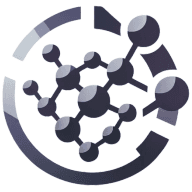6 Ways Nanotechnology Will Revolutionize Industries in the Future
As the world stands on the brink of a technological revolution, nanotechnology emerges as a pivotal force poised to transform industries beyond recognition. From refining risk assessment in insurance to enhancing the resilience of materials, the implications are vast and varied. This examination reveals how the ultra-small scale of nanotech is set to make gigantic strides in sectors like medicine, computing, and energy.
- Nanotech Transforms Insurance Risk Assessment
- Nanotech Enhances Material Durability
- Nanofiltration Revolutionizes Wastewater Treatment
- Precision Medicine Advances with Nanotech
- Nanotech Boosts Computing Power
- Nanotech Improves Solar Energy Efficiency
Nanotech Transforms Insurance Risk Assessment
Nanotechnology is poised to revolutionize how we assess and price risk in the insurance industry through microscopic sensors embedded in insurable assets. We're already seeing early applications in auto insurance, but the real transformation will come from nano-sensors that can detect structural weaknesses in buildings or early signs of health issues before they become catastrophic claims.
For example, imagine smart building materials with embedded nanotech that can monitor stress points and moisture levels in real-time, allowing insurers to alert property owners about potential issues before they lead to major damage. This shift from reactive to preventive insurance will fundamentally change how we price policies and handle risk assessment. We estimate this could reduce commercial property claims by up to 40% while enabling dynamic pricing models that reward proactive maintenance. The challenge for insurers will be adapting their underwriting models to incorporate this continuous stream of nano-sensor data.

Nanotech Enhances Material Durability
Nanotechnology has the potential to greatly improve the durability of materials used in various industries. By integrating nanoparticles into products, manufacturers can create items that are more resistant to wear and tear. This could lead to longer-lasting consumer goods, reduced maintenance costs, and more sustainable production practices.
The construction industry, for example, could see buildings and infrastructure that withstand the elements much better than before. Dive deeper into understanding how nanotechnology can enhance the lifespan of everyday materials and support green initiatives.
Nanofiltration Revolutionizes Wastewater Treatment
Wastewater treatment could be transformed by the application of nanofiltration methods. These tiny filters can remove contaminants at a much smaller scale, making water purification more efficient and effective. Industries that manage large amounts of water waste, such as agriculture and manufacturing, could benefit immensely from this technology.
The result would be cleaner water supplies and a reduction in the environmental impact of industrial activities. Explore the innovations in nanofiltration that promise cleaner and more sustainable water management.
Precision Medicine Advances with Nanotech
The field of medicine could be revolutionized by nanotechnology through precision medicine. By using nanoscale particles to deliver drugs directly to affected cells, treatments could become more effective with fewer side effects. This targeted approach means that patients could receive more personalized and successful healthcare.
Cancer treatment, in particular, could see significant advancements with the ability to attack tumors directly without harming surrounding tissues. Look into the ways nanotechnology is paving the path for breakthrough medical treatments.
Nanotech Boosts Computing Power
The advancement of computing technology could take a huge leap forward with the incorporation of nanotechnology. Scientists are developing processors that operate on the nanoscale, capable of much faster processing speeds than current technology. This could lead to dramatically improved performance in everything from personal computers to large data centers.
Such developments would not only speed up computing but also enhance the efficiency and capabilities of artificial intelligence. Stay informed about the latest in nanotechnology to see how it will change the future of computing.
Nanotech Improves Solar Energy Efficiency
Nanotechnology holds great promise for the future of solar energy capture and storage. By using nanomaterials, solar panels can become more efficient at converting sunlight into electricity. Additionally, nanotechnology-enhanced batteries could store this energy more effectively for use when the sun is not shining.
This could make renewable energy sources more reliable and widespread, helping to reduce reliance on fossil fuels. Learn more about how nanotechnology is bringing us closer to a sustainable energy future.

